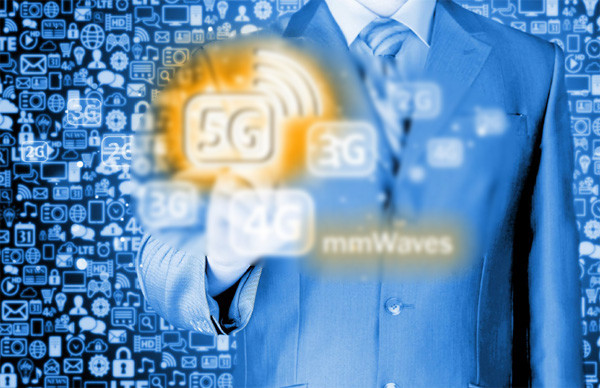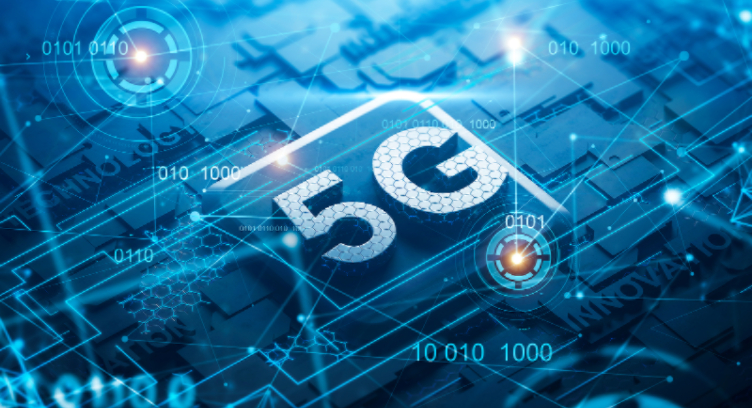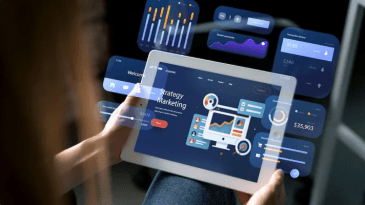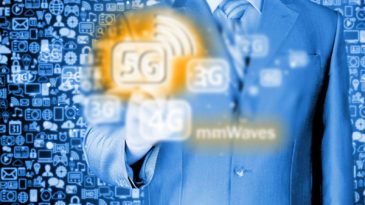- Tech
- Updated on April 5, 2025
The Impact of 5G: How It Will Change the Way We Live and Work

The advent of 5G technology marks a revolutionary step in the evolution of telecommunications. Promising to be faster, more reliable, and more efficient than its predecessors, 5G is set to change the way we interact with the world around us. From boosting mobile internet speeds to enabling smarter cities, this new technology is poised to impact virtually every aspect of our daily lives. But what exactly is 5G, and how will it change the way we live and work? In this post, we’ll explore the potential of 5G and how it will reshape our world.
What is 5G?
5G, or fifth-generation wireless technology, is the next step in mobile network evolution. It promises faster data transfer speeds, reduced latency, and greater reliability compared to 4G. While 4G already offers high-speed internet and supports the growing use of smartphones, 5G takes it to the next level. This technology is designed to handle more devices simultaneously and enable real-time communication, which is crucial for emerging technologies like smart homes, autonomous vehicles, and the Internet of Things (IoT).
Faster Internet Speeds and Improved Connectivity

One of the most obvious benefits of 5G is its incredibly fast data speeds. With download speeds that can reach up to 10 Gbps, 5G is up to 100 times faster than 4G. This leap in speed will allow for smoother video streaming, faster downloads, and more responsive gaming experiences. But speed isn’t the only improvement.
5G also significantly reduces latency, the delay between sending and receiving data. While 4G latency is around 30-50 milliseconds, 5G will lower it to around 1 millisecond. This near-instantaneous communication will be especially beneficial for real-time applications like virtual reality (VR), augmented reality (AR), and remote surgeries in healthcare.
The Role of 5G in Smart Cities
5G will play a pivotal role in the development of smart cities. The high-speed network and low latency will support the connection of millions of devices, from traffic sensors and streetlights to smart home systems and electric vehicles.
For example, 5G will enable intelligent traffic management systems that can communicate in real-time with vehicles and pedestrians to reduce congestion and accidents. It will also facilitate the development of autonomous vehicles, allowing them to communicate seamlessly with their environment for safer and more efficient driving.
Smart homes will also benefit from 5G’s ability to connect a vast array of IoT devices. From smart thermostats to voice-activated assistants, 5G will make these systems faster, more reliable, and more integrated into daily life.
5G in Healthcare: Enabling Remote Care and Telemedicine
The healthcare sector is another area where 5G will have a profound impact. With the low latency and high-speed capabilities of 5G, telemedicine will become more effective and accessible. Doctors will be able to perform remote consultations with patients, even in rural areas, using high-definition video calls that were previously hindered by slow internet connections.
Moreover, 5G will enable remote surgeries where surgeons can operate on patients from miles away using robotic arms controlled in real-time. The precision offered by 5G connectivity will be vital in these scenarios, allowing for more complex and accurate procedures.
5G will also support the use of wearable health devices that constantly monitor vital signs. This real-time data collection will improve the ability to detect health issues early, enabling timely interventions.
5G and the Future of Work: Enabling Remote Collaboration
5G will reshape how businesses operate and employees work, especially in a post-pandemic world where remote work is becoming the norm. With faster internet speeds and greater connectivity, 5G will support seamless remote collaboration across multiple devices and platforms.
For example, employees working remotely will be able to attend high-quality video conferences without lag, transfer large files quickly, and access cloud-based applications with little to no delay. Industries like architecture, engineering, and design will benefit from 5G’s ability to support large-scale data transfer and VR/AR applications that allow for virtual product design and real-time collaboration.
Additionally, businesses will be able to use 5G to optimize their supply chains. With real-time data and improved communication, businesses can monitor inventory, track shipments, and manage logistics more efficiently.
5G and the Growth of IoT (Internet of Things)
The Internet of Things (IoT) refers to the network of interconnected devices that communicate with each other and share data. As more and more devices become connected, the need for faster, more reliable networks increases. 5G’s ability to connect millions of devices simultaneously will unlock the full potential of IoT.
With 5G, smart devices will be able to communicate in real time, opening up possibilities for automation in various industries, including manufacturing, agriculture, and transportation. For example, in smart agriculture, 5G-enabled sensors can monitor soil conditions and weather patterns, providing farmers with real-time data to optimize crop production.
In manufacturing, 5G will enable the use of robots and autonomous machines that can work together to improve production efficiency and reduce human error. Factories will become more flexible, responsive, and adaptable, thanks to the power of 5G.
Read Also : The Future of IoT: How it Will Shape Our World
The Challenges of 5G: Privacy, Security, and Infrastructure
While the promise of 5G is exciting, there are challenges that need to be addressed. One of the major concerns is security. As more devices are connected through 5G, the risk of cyberattacks increases. With personal data and critical infrastructure at stake, ensuring the security of 5G networks will be a top priority for governments and businesses alike.
Privacy is another concern. With the vast amount of data being collected from IoT devices, individuals’ personal information could be at risk. Proper data protection measures and regulations will need to be put in place to safeguard privacy.
Finally, the infrastructure required to support 5G networks is vast and expensive. While major cities are already starting to deploy 5G, rural areas may still face challenges in accessing this new technology. Governments and telecom companies will need to collaborate to ensure widespread coverage and equal access to 5G networks.
Conclusion: Embracing the Future of 5G
The arrival of 5G impact technology is an exciting milestone in the world of telecommunications. Its ability to provide faster speeds, lower latency, and better connectivity will revolutionize industries and transform everyday life. From smarter cities to enhanced healthcare and remote work opportunities, 5G impact will have a profound impact on how we live, work, and interact with the world around us.
While challenges such as security and infrastructure remain, the potential of 5G impact is undeniable. As the technology continues to develop and expand, we can look forward to a future where connectivity is faster, more efficient, and more integrated into our lives than ever before.
The power of 5G impact will reshape industries, unlock new opportunities, and ultimately pave the way for a smarter, more connected world.
Join the discussion
Related Articles
No results available
ResetTrending Articles


- General
- Updated on February 26, 2026


- General
- Updated on February 23, 2026


- General
- Updated on February 20, 2026


- General
- Updated on February 18, 2026


- General
- Updated on February 17, 2026


- General
- Updated on February 10, 2026


- General
- Updated on February 14, 2026


- General
- Updated on February 7, 2026


- General
- Updated on February 5, 2026


- General
- Updated on February 2, 2026
No results available
Reset


